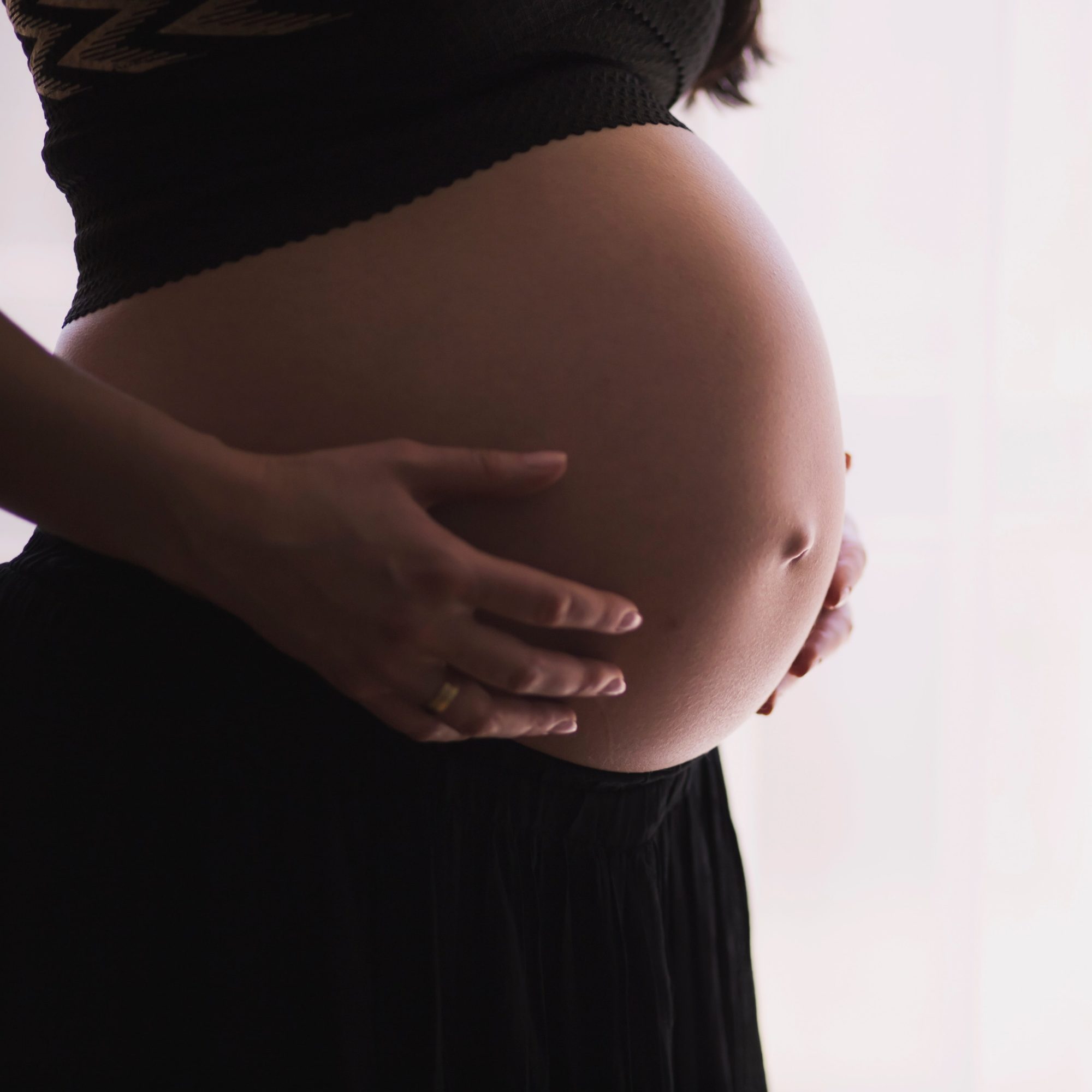
- POPSUGAR Australia
- Living
- Yes, Pregnancy Nose Is Real — Here’s What Experts Want You to Know
Yes, Pregnancy Nose Is Real — Here’s What Experts Want You to Know

The body changes a lot during pregnancy – from fluctuating hormones to a growing belly. But a new social media trend is shining light on a physical change in pregnancy that has caught many people off guard: pregnancy nose.
On TikTok, #PregnancyNose has more than 29 million views, with an additional 2.9 million under #PregnantNose. Each hashtag is filled with people sharing photos of what their noses looked like before they were pregnant and during pregnancy. The difference in many cases is drastic.
One creator, who goes by heyosato, has more than 23 million views on their #PregnancyNose video. “I’m going to be so cute pregnant! I can’t wait,” the first photo caption reads. Then that image is followed up by a second photo captioned, “Pregnancy is ghetto,” where heyosato’s nose shape is noticeably different. The video has been stitched hundreds of times on TikTok, with others sharing their experience with pregnancy nose or reacting that they’ve never heard of a nose changing during those nine months.
So what’s the truth? Is pregnancy nose real? Here’s what the experts have to say.
Is Pregnancy Nose a Real Thing?
As it turns out, yes, pregnancy nose can happen. Despite many people on TikTok being surprised the change, your nose can be affected by a pregnancy, Monte Swarup, MD, board-certified in OB/GYN in Chandler, AZ, and founder of HPD Rx tells POPSUGAR. Dr. Swarup says that pregnancy nose affects approximately 20 percent of pregnant people.
Pregnancy nose is an umbrella term for changes in the nose during pregnancy, and experiences can vary. For example, some find themselves with a constant “runny nose,” while others may have congestion, swelling, or be more prone to a bloody nose, Kecia Gaither, MD, director of perinatal services at NYC Health + Hospitals/Lincoln tells POPSUGAR.
Why Does Pregnancy Nose Happen?
The answer for why some experience pregnancy nose isn’t fully understood, says Lynae Brayboy, MD, FACOG, and chief medical officer of Clue.
There are theories, however, as Dr. Brayboy points out. “There have been reports that it is a combination of high levels of hormones from the placenta and immune changes or sensitivities to allergens like dust mites,” she says.
As Dr. Swarup explains, the hormone level increase in pregnancy can cause blood vessels “to become dilated.” As a result, there will be “more blood flow to parts of the body including the nose,” which may lead to swelling and congestion.
Is Pregnancy Nose a Cause for Concern?
While pregnancy nose may be bothersome to some people, it’s generally harmless, Dr. Brayboy says. However, some pregnant people should be aware of potential exacerbations of other medical concerns.
“Any pregnant person with respiratory or breathing problems should be aware that the congestion can lead to something called post-nasal drip,” Dr. Brayboy explains. And this can lead to an exacerbation of breathing issues, like an asthma attack.
Also, facial swelling and swelling of the hands accompanied by blurred vision and headaches during pregnancy (particularly during the second half of pregnancy, from 20 weeks) should be flagged to a medical provider, as it can be a sign of preeclampsia, according to the Cleveland Clinic.
How is Pregnancy Nose Treated?
When treating pregnancy nose, the focus will be on managing symptoms to minimize the discomfort during pregnancy. Laying on your back can make congestion worse, for example, but keeping the head of your bed elevated during sleep may help ease symptoms and help prevent interrupted sleep, says Dr. Gaither.
Other treatments may include “nasal saline to keep membranes moistened” and using humidifiers, she adds.
Will a Pregnancy Nose Go Back to Normal?
The good news is that pregnancy nose is temporary and will return to its pre-pregnancy size quickly following the end of the pregnancy.
Symptoms generally resolve within 2-4 weeks postpartum, Dr. Gaither says. However, if there is any discomfort stemming from pregnancy nose during pregnancy or lingering after, it’s best to see your physician or otolaryngologists.

